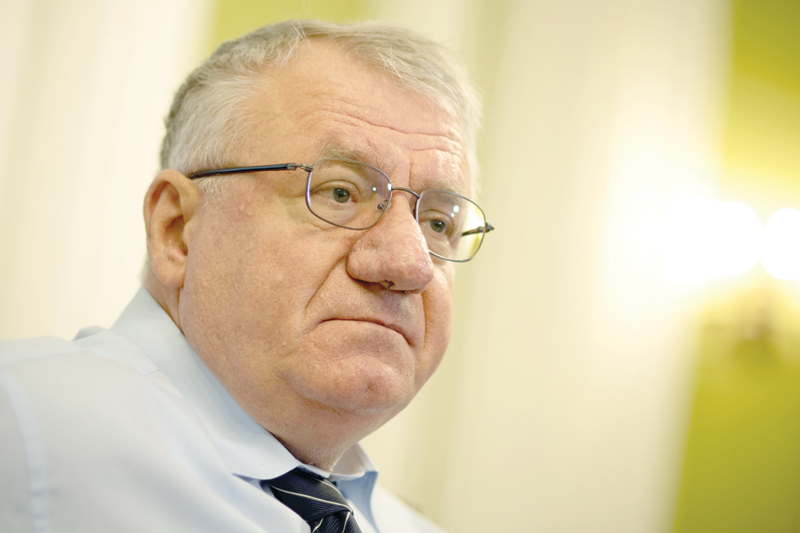

The Hague: UN judges on Wednesday found radical Serb Vojislav Seselj guilty on appeal of crimes against humanity, but the firebrand politician will remain a free man because of time already served behind bars.
Seselj said after the ruling that he was “proud” of the crimes he was convicted of — including inciting persecution — and was willing to do the same again.
Presiding judge Theodor Meron sentenced the firebrand politician to 10 years behind bars, at a hearing in The Hague.
“The appeals chamber reverses Seselj’s acquittals for instigating persecution, deportation and other inhumane acts as crimes against humanity,” the judge said.
The judges however said that in line with the court’s rules, “Seselj’s sentence has been served” after he spent about 12 years in jail while facing trial at the former Yugoslav war crimes court.
Seselj snubbed the hearing and was not present when the verdict was read by judges at the Mechanism for International Criminal Tribunals (MICT) in The Hague.
He had been acquitted in March 2016 of six war crimes and three crimes against humanity charges after a trial lasting more than eight years at the International Criminal Tribunal for the former Yugoslavia (ICTY).
A three-judge panel led by French judge Jean-Claude Antonetti said in 2016 that prosecutors had “failed to prove beyond all reasonable doubt” or provide sufficient evidence that Seselj was responsible for the crimes he had been charged with.
The verdict had been heavily criticised by law experts and historians who said it had rewritten the history of the Balkans conflicts.
The five appeals judges agreed on Wednesday, partially overturning the original trial’s findings, finding him guilty of three counts of crimes against humanity, but upholding his acquittals on the six counts of war crimes.
Either the initial court had “ignored a substantial portion of highly relevant evidence and its own findings, or it erred in fact,” Meron said. — AFP
Oman Observer is now on the WhatsApp channel. Click here



